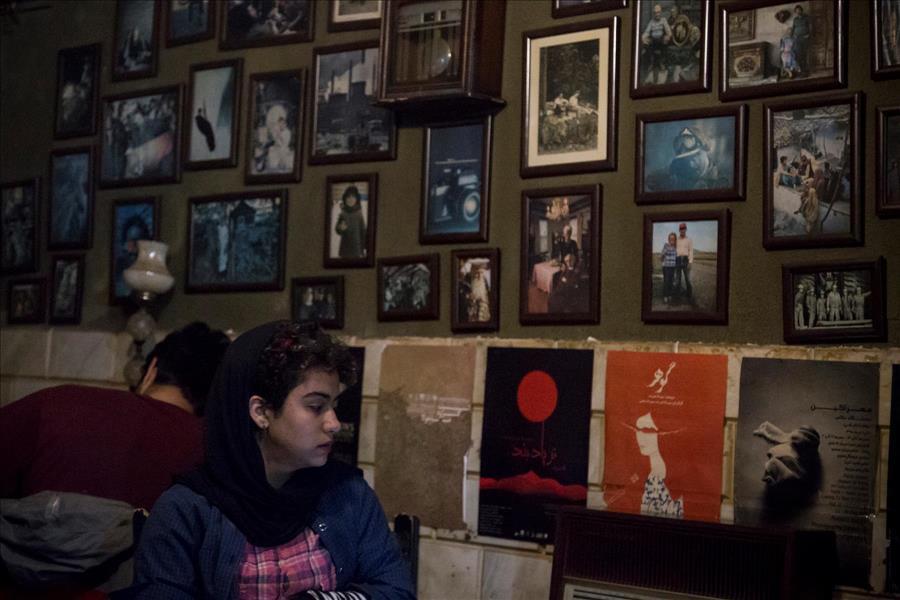(MENAFN- Asia Times) As Iranians took to the streets in cities and towns across the country last month in response to a massive fuel hike tax, the northern province of Guilan stood out as an exception.
Home to more than 2.5 million people, and bordering Russia from its perch on the Caspian Sea, Guilian's muted reaction to the protest movement offers a window into the economic inequalities in the Islamic Republic today, as well as the resignation felt by many Iranians under sanctions.
Figures by the Statistical Center of Iran indicate Guilan is the fifth richest province of Iran, outpacing 26 provinces in terms of household net worth thanks to its agricultural resources.
According to the Rice Research Institute of Iran, Guilan is the most important producer of high-quality rice nationally. The province is also the heart of Iran's tea production.
Historically, Guilan has been known as Iran's gateway to Europe, due to the heavy involvement of the Russian Empire in the province. Today, Russia maintains a Consulate General in the provincial capital of Rasht. The province shares a land border with the Republic of Azerbaijan and is connected by sea to Russia, Kazakhstan, and Turkmenistan.
Guilan greatly benefits from this geography, exporting considerable quantities of goods from its ports of Bandar-e Anzali and Astara to the Caspian Sea countries and beyond to Turkey and several European states.
The first six months of the Iranian calendar year, beginning in March, saw a total of US$182 million worth of goods exported from Guilan's harbors.
The northern exception
A combination of sectarian tensions, religious grievances, mismanagement by the authorities, damages sustained during the eight-year war with Iraq in the 1980s and unfavorable environmental conditions have made Iran's southern and some western provinces hotspots for public resentment against the government.
In the southern port city of Mahshahr alone, anywhere from 40 to 100 protesters are believed to have been killed during the November protests.
Although Guilan suffers from a dearth of modern infrastructure, mostly in the transportation and housing sectors, its people do not face the level of deprivation or sectarian fault lines which Iranians in southern and western parts of the country wrestle with.
Guilanis generally have less resentment toward the government and more tolerance for shocks such as the one triggered by the government's decision to multiply the gasoline price.
In the 2020 budget bill, which President Rouhani submitted to the parliament on December 6, Guilan was one of the provinces being allocated the smallest share of the national budget, in recognition of its relatively well-off position.

A young Iranian woman sits at a cafe in Rasht, Guilan province, Iran, on March 18, 2019. Photo: Rouzbeh Fouladi / NurPhoto
Samaneh Tohidzadeh, a young physics teacher and nanophysics graduate student in Rasht, says local resources have allowed the people of Guilan to be self-reliant.
In Tohidzadeh's view, the 'resistance economy' promoted by the authorities – switching to domestic inputs, bartering, etc – 'is only being tested on underprivileged groups.'
Yet the people of Guilan are already implementing their own resistance economy, relying on local resources as opposed to outside aid.
'The people of Guilan have less reliance on the state economy and administrative jobs, and even the government employees earn the greater portion of their income through agriculture and investment on the lands they own,' she told Asia Times.
Resigned to reality
Other residents of Guilan say they have simply accepted that crippling US sanctions are an inescapable reality that will be impacting their daily lives for the foreseeable future.
Jila Farzin, a 30-year-old housewife in Rasht, says the people of Iran have come to terms with the economic situation, because they have no other choice.
'People have been grappling with inflation and a skyrocketing of prices for several years and I can say although there have been protests nationwide over the fuel price hikes, such spasms [in prices] are being normalized,' she told Asia Times.
For some Iranians, moving out of the country is the panacea. 'However, it should be noted the unfavorable economic conditions and the fluctuations of foreign currencies have taken a toll on people's ability to emigrate,' the teacher Tohidzadeh said.
According to UN figures , there were 2.68 million Iranians living outside the Islamic Republic, a country of more than 80 million, as of this year.
'Nobody is happy with the situation,' said housewife Farzin. 'Other than a small group of well-off merchants and owners of hereditary businesses, the rest of the people are struggling.'
At the same time, she says, people have lost hope of a breakthrough or change in Iranian policies that would allow the sanctions to be lifted.
And, 'they know that if they protest, it will be quashed.'
MENAFN2412201901590000ID1099467801
Legal Disclaimer:
MENAFN provides the information “as is” without warranty of any kind. We do not accept any responsibility or liability for the accuracy, content, images, videos, licenses, completeness, legality, or reliability of the information contained in this article. If you have any complaints or copyright issues related to this article, kindly contact the provider above.